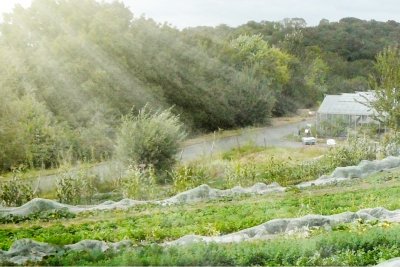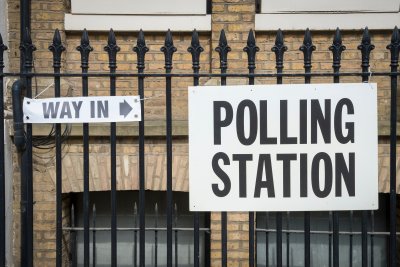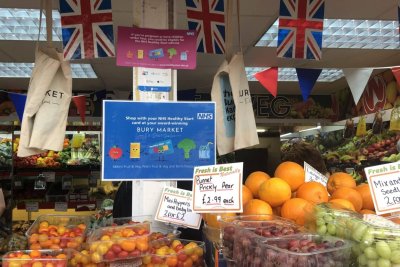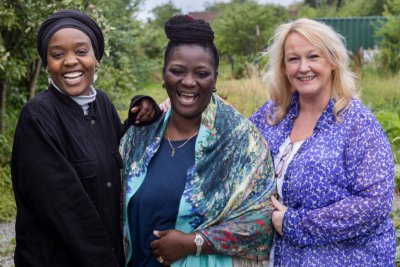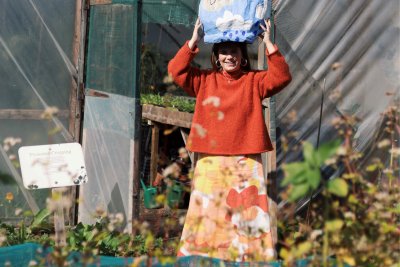Blogs • Sustainable Food Places
How can Local Enterprise Partnerships put better food and farming at the heart of economic recovery
When choosing how to allocate large sums of investment funding, Local Enterprise Partnerships (LEPs) should invest in values-led food, farming and fishing to deliver the goods they seek to bring to local areas. Merav Shub highlights some of the main arguments from Sustain's new report which looks into this issue.
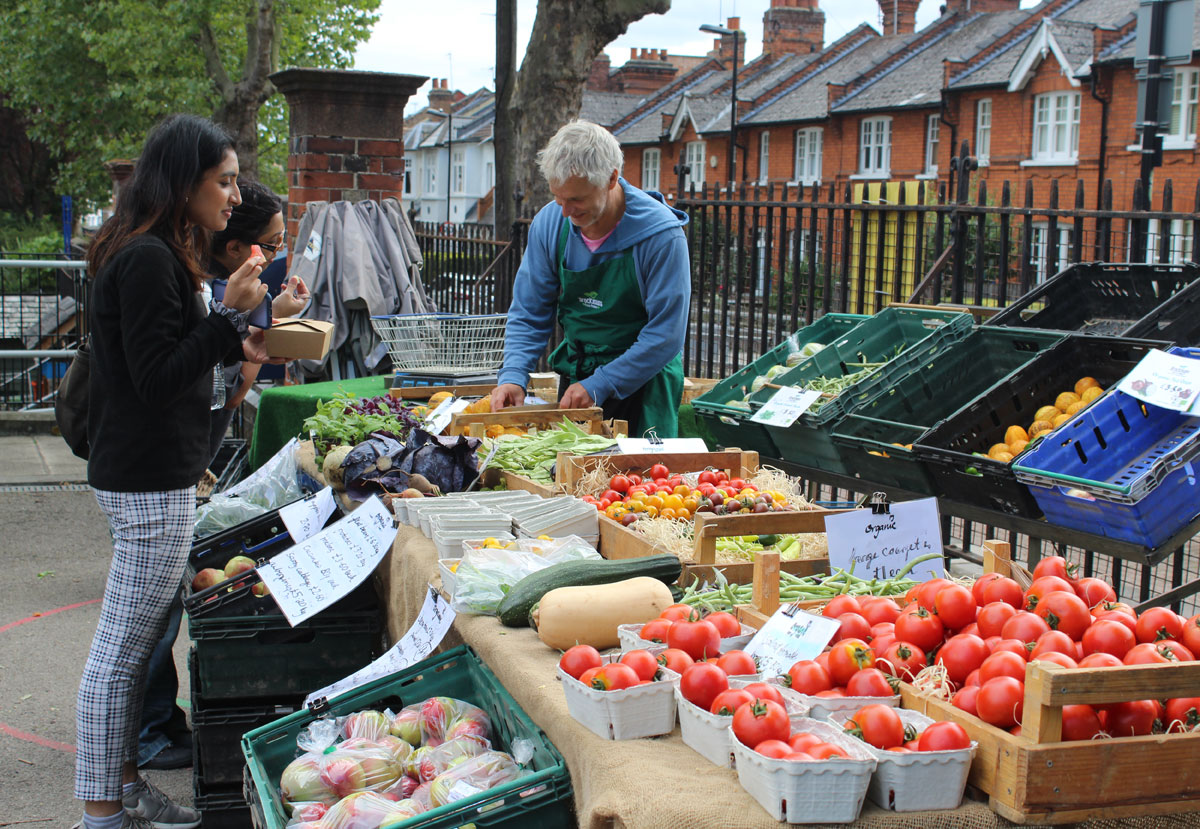
Do you want to hear more about what Local Enterprise Partnerships are? Register for our webinar on the 2nd November, 2-3.15pm
Few people know what LEPs are or what they do. But they should, especially if they run sustainable food, farming or fishing enterprises. Sustain's new briefing details the background to LEPs, and both why there is an opportunity for them to invest in values-led food, farming and fishing which can deliver the multiple benefits they want to support. In practice this would mean supporting infrastructure and enterprises that are low-carbon, nature-friendly, healthy, fair, inclusive, resilient and prosperous by design.
LEPs… what are they??
LEPs were set up in England by the Conservative-Liberal Democrat Coalition Government in 2011 to enable local areas to direct their own development, growth and prosperity. Before that there were Regional Development Agencies, more state led bodies which were swept away in favour of enterprise led bodies at a more localised scale. Since their creation LEPs have become a favoured conduit for ever larger sums of public funds into local enterprise, infrastructure, skills training and housing projects ever since.
As the LEP Network explains, Local Enterprise Partnerships are ‘strategic bodies that bring together leaders from business, local government, education and other local stakeholders to drive private sector led growth at a local level’[2] and ‘play a central role in deciding local economic priorities and undertaking activities to drive economic growth and job creation, improve infrastructure and raise workforce skills within the local area’[3]. There are 38 LEPs across England delivering many different LEP projects, with equivalent bodies in the devolved nations.
From 2014 to 2020, LEPs have been given £6.5 billion of European funding and £7.2 billion from the UK Government. That’s a lot (though somewhat dwarfed by sums being poured into Covid-19 support measures).
Yet few LEPs focus specifically on supporting food and farming. Some host Food Enterprise Zones, where the focus is usually on enabling large-scale agribusiness development, for example in Lincolnshire. But a consistent focus on a more holistic, values-led system of food, farming and fishing is worryingly absent. And when you speak to the founders of small sustainable food enterprise start-ups around the country, some have never heard of a LEP and don’t know they could provide them with valuable support.
So why should LEPs support better food and farming?
The food and farming sector is the biggest employer in the UK; in 2018 it employed one in seven of the UK workforce.[4] It is one of the most resilient in economic downturns and is well distributed across the UK, because well…we all need to eat. So a sector with huge impacts - on health, social cohesion, the economy, the environment - and huge potential to both 'level up' across the UK whilst driving improvement in these areas.
Weaving sustainable food and farming into local decision making is not a new idea. It was a clear priority for the Regional Development Agencies that preceded LEPs, who often supported sustainable food supply chains, especially after farming crises such as BSE (mad cow disease) and Foot and Mouth Disease, helping rural economies recover.
As key vehicles for investment, LEPs could revitalise infrastructure in local food systems which has been under-resourced for decades. Helping smaller, more sustainable food businesses thrive by giving them the specific funding, infrastructure, support and training that they need could help sustain and create jobs whilst also driving more sustainability and resilience in the food and farm economy.
Sustainable Food Places and LEPs
Alongside LEPs are Local Food Partnerships. Like LEPs, these bring together public and private sector groups with academics, community and voluntary groups but their focus is on defining where food influences economic, environmental, health and social outcomes. Food partnerships in many areas support the local food economy by helping businesses that are improving their health, environmental and social impacts, and the livelihoods of farmers and workers in the supply chain. The growing network of these partnerships – Sustainable Food Places – already covers 60 cities, boroughs and counties that represent about a third of the UK population. But mirroring the LEPs, many local food partnerships lack meaningful involvement with local economic bodies or those influencing local investment.
So, there is huge potential to combine the local knowledge, networks, and multi-disciplinary engagement of the Food Partnerships with the investment capacity of LEPs.
Some LEPs already support sustainable food and farming, for example London’s LEP, in partnership with the Mayor of London, has invested in many sustainable food related projects through its Good Growth Fund. These include £3m for the Mission Kitchen open workspace, offering affordable kitchen space to food start-ups and SMEs, and the investment of over £1m in a Market Garden Cities project led by social enterprise Organiclea. Cornwall and Isles of Scilly LEP and Hertfordshire LEP are also supporting projects that promote more sustainable local food chains.
LEPs’ role in funding economic development may grow again!
As the UK leaves the European Union, development funds previously distributed via the EU may be pooled into a UK Shared Prosperity Fund that may be channelled via LEPs. Such EU funds have in the past supported work on local economies, rural enterprise and sustainable food supply chains in England and the devolved nations. LEPs have also been encouraged to work closely with Local Nature Partnerships on delivering environmental improvement.[5] We encourage LEPs to see the value of continuing, enhancing and greatly increasing this support.
LEPs and Post-Covid Economic Recovery
In early August 2020 the government confirmed a list of over 300 shovel-ready projects that will get a share of £900 million from the Getting Building Fund. These infrastructure projects - intended to stimulate jobs and economic recovery across the country - were all chosen by Local Enterprise Partnerships and Mayoral Combined Authorities and include:
- regeneration of town and city centres
- green infrastructure and clean energy
- transport and digital connectivity improvements
- unlocking housing and business sites
- support for SMEs and learners
Interestingly they include a project to build a ‘sustainable food factory’ within a new a high-tech food manufacturing and distribution ‘campus’ in Derby. We hope all these projects will embed genuinely sustainable, values-led food and farming principles. But note ‘shovel-ready’ may mean ‘designed with yesterday’s ideas’.
These are exceptionally challenging times. As the UK plans its recovery from the economic shock of Covid-19[1], will the money LEPs invest make the country more resilient to future crises, including the climate and nature emergency? Will it help deliver the Government’s goal of ‘levelling up’ communities across the UK, and support British food, farming and fishing resilience post Brexit?
These are big asks, yet LEPs have a big reach.
Download Sustain's report on the role of LEPs supporting food and farming
Calling all LEPs: your country need YOU to support better food and farming!
We welcome LEP projects that already promote a sustainable food and farming sector. To achieve more of this, we suggest that all LEPs:
- Invite local business leaders of sustainable food enterprises, including farmers and farmer groups, or local food partnerships[6], to join LEP boards
- Make local sustainable food enterprises aware of growth funding available through LEPs
- Direct investment funds towards infrastructure development to support better food enterprises and trading
- Increase transparency and reporting on local LEP funding bids and allocations
- Provide start-up and training tools for new enterprises to trade locally and regionally produced food
- Plan for developing food infrastructure to assist with regional and local processing and trading – small abattoirs, milling and storage capacity, marketing hubs
- Ensure tools are available including training, facilitation grants and capital grants for local farmers and producers to develop sustainable products, gain skills and be able to trade locally
Sustain is actively cultivating pioneers and business models that embody these values. We believe LEPs should place values-led food, farming and fishing central to their investment programmes. We are more than happy to help.
Do you want to hear more about what Local Enterprise Partnerships are? Register for our webinar on the 2nd November, 2-3.15pm
[2]https://www.lepnetwork.net/media/1471/the_future_of_local_enterprise_partnerships_by_shared_intelligence_december_2017.pdf
[4] https://www.gov.uk/government/publications/food-statistics-pocketbook/food-statistics-in-your-pocket-summary
[6] Most local food partnerships are part of the Sustainable Food Places network: https://www.sustainablefoodplaces.org/
Published Tuesday 27 October 2020
Sustainable Food Places: The Sustainable Food Places Network helps people and places share challenges, explore practical solutions and develop best practice on key food issues, so if you are working to drive positive food change or are interested in developing a programme, please do get in touch.
